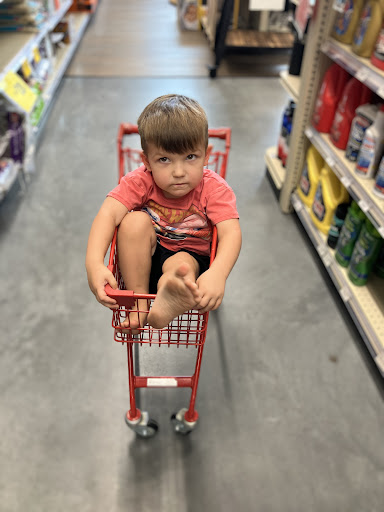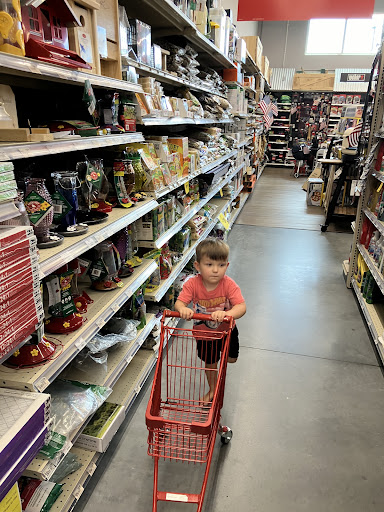Get a new key fob for my car: 7 Powerful Easy Steps 2025
Why Getting a New Key Fob for Your Car Doesn’t Have to Be Complicated
When you need to get a new key fob for my car, you have several options that can save you both time and money:
- Dealership: Most expensive ($200-$400) but guaranteed compatibility
- Local locksmith: Mid-range pricing ($100-$200) with mobile service
- Online retailers: Budget-friendly ($50-$150) with DIY programming
- Hardware stores: Professional service at up to 50% savings vs dealership
If you’re running late for work, the last thing you need is a missing car key. Modern key fobs do much more than just open up your doors – they’re sophisticated security devices that communicate with your car’s computer system using encrypted radio signals.
These small but powerful devices have evolved from simple remote controls to smart proximity keys that can start your engine without ever leaving your pocket. Whether you’ve lost your only fob, need a spare, or your current one has stopped working, understanding your replacement options can save you hundreds of dollars and hours of frustration.
The helpful team at Lowcountry Ace has extensive experience guiding customers through automotive key replacement projects, helping Charleston-area residents get a new key fob for my car at dealership quality with significant cost savings. Our expertise in key cutting and programming ensures you’ll get back on the road quickly and affordably.
Get a new key fob for my car word guide:
Key Fob 101: What It Is & Why It Matters
Today’s automotive key fob is a tiny, battery-powered computer that combines convenience and security. Each time you press a button, it sends an encrypted, one-time radio signal to your car’s Electronic Control Unit (ECU). Because the “rolling code” changes every use, thieves can’t simply copy the signal and drive away. What began in the 1980s as a luxury feature is now standard on nearly every new vehicle, and studies show immobilizer systems have sharply reduced theft rates worldwide.
Types of Car Key Fobs
- Traditional remote fobs – separate buttons for lock, open up, and panic.
- Integrated flip keys – metal blade folds into the remote body.
- FOBIK units – Chrysler’s rigid, non-folding version of an integrated key.
- Smart or proximity keys – stay in your pocket while you open doors or push-button start.
- Aftermarket shells – refresh a worn case by moving over the original electronics.
- OEM units – factory originals that match your vehicle exactly.
How Key Fobs Talk to Your Car
- You press a button; the fob broadcasts on 315 MHz or 433 MHz.
- An antenna ring near the ignition or door handle receives the signal.
- Your car’s ECU verifies the rolling code. If it matches, doors open up or the engine starts.
All this happens in milliseconds, yet the encryption is sophisticated enough that you can’t simply buy a random fob and expect it to work. Knowing which type your vehicle uses is the first step toward a smooth replacement.
How to Identify the Right Replacement Fob
When you need to get a new key fob for my car, finding the exact right replacement can feel overwhelming at first. But with the right approach, you’ll have all the information you need in just a few minutes.
Your car’s make, model, and year are the starting point, but even vehicles from the same model year can use completely different fob types depending on trim levels and optional features. A base model Honda Civic might use a simple two-button fob, while the same year’s Civic with remote start needs a completely different unit.
The most reliable way to ensure compatibility is through your Vehicle Identification Number (VIN). This 17-character code acts like your car’s fingerprint, providing precise details about your vehicle’s specifications. You can find your VIN on your dashboard (look through the windshield on the driver’s side), on the driver’s side door jamb, or on your vehicle registration documents.
Your existing fob holds the key to finding its perfect replacement – literally. Look for the FCC ID, a unique identifier that ensures you get an exact match. This alphanumeric code is usually hiding in the battery compartment or printed on the circuit board.
Don’t overlook the button count and layout either. Some vehicles offer multiple fob options depending on features like remote start, trunk release, or sliding door controls.
| Compatibility Check Method | Dealership | Locksmith | DIY |
|---|---|---|---|
| Accuracy | Highest – Direct database access | High – Professional tools | Medium – Relies on online tools |
| Cost | Free consultation | Small fee ($10-20) | Free |
| Time Required | 10-15 minutes | 5-10 minutes | 15-30 minutes |
Reading Part Numbers & FCC IDs
Finding those tiny identification numbers requires a bit of detective work. Start by removing the battery cover – most fobs have a small sliding panel or twist-off cap that reveals the battery compartment.
Look for small printed labels or engraved numbers in these common hiding spots: inside the battery compartment, on the back of the circuit board, molded directly into the plastic case, or on a small sticker tucked under the battery itself.
If you’re having trouble finding physical markings, check your owner’s manual – it often lists compatible fob part numbers and FCC IDs in the keys and locks section.
Double-Checking Compatibility Before You Buy
Before you click “buy now” on that replacement fob, take a few extra minutes to verify compatibility through multiple sources. Many online retailers offer “garage” filter tools where you enter your vehicle information to see only compatible products.
Check for manufacturer service bulletins that might affect fob compatibility. Some model years had mid-year changes that aren’t immediately obvious.
Consider consulting with a certified locksmith who can verify compatibility and programming requirements before you purchase. The helpful team at Lowcountry Ace can help you steer these compatibility questions, ensuring you get the right fob the first time.
How to Get a New Key Fob for My Car: Your Options
Staring at a silent fob doesn’t leave you helpless. Three realistic avenues can get you rolling again, each with a different blend of price, speed, and DIY effort.
1. Dealership Route: Fast but Pricey
Pros: guaranteed OEM parts, direct access to security PINs, and a clear warranty path. Cons: $200–$400 total and you’ll need to arrange transport if all keys are lost.
2. Local Locksmith Fix
Many certified locksmiths provide mobile service, cut the emergency blade on-site, and program the electronics for $100–$200. Evening and weekend calls cost more, so always confirm pricing up front.
3. DIY & Online Kits
Online marketplaces sell replacement fobs as low as $6.95 (basic) to $62.99 (smart). Add $50–$100 for a pro to program if your vehicle doesn’t support self-programming. Older cars (pre-2000) often allow DIY pairing in under 20 minutes, while newer models typically require specialized tools.
For drivers around James Island and Folly Beach, Lowcountry Ace stocks popular fobs and offers programming that lands squarely between dealership cost and internet uncertainty—usually the sweet spot for both budget and peace of mind.
Programming & Pairing Your New Fob
Getting your new key fob to actually work with your car is where the magic happens. Programming your new fob creates a secure digital handshake between your replacement and your vehicle’s computer system, allowing it to open up doors, start the engine, and activate all those convenient features you’ve been missing.
The programming process varies dramatically depending on what you’re driving and when it was made. Some older vehicles make it surprisingly easy – you can program them right in your driveway with nothing more than your existing keys and a bit of patience. Newer cars, especially those with smart key technology, often require specialized equipment that only professionals have access to.
Many vehicles support onboard programming using what’s called the “two-working-key method.” This system requires you to have at least two functioning keys to program a third one. You’ll insert and remove keys in a specific sequence while pressing fob buttons at precisely timed intervals.
Can I Program It Myself?
Here’s a handy rule of thumb: if your car was built before 2000, you’ve got a decent chance of programming it yourself. After that year, manufacturers started implementing more sophisticated security systems that typically require professional equipment.
Classic remote fobs with basic lock and open up functions are your best bet for DIY success. The programming process usually takes about 10-15 minutes and involves following precise timing sequences. You’ll need to be quick with your button presses and key turns – these systems are picky about timing.
Smart keys and proximity fobs are a whole different story. These sophisticated devices use complex encryption and security protocols that almost always require professional programming. Trying to program these yourself can sometimes disable your existing fobs or trigger security lockouts.
The required tools for DIY programming are usually things you already have – your existing keys, the new fob, and sometimes a stopwatch to keep track of timing.
Professional Programming: When to Call for Help
Some situations absolutely call for professional help. Smart key encryption systems, all-keys-lost scenarios, and vehicles with hybrid security systems require specialized diagnostic equipment and manufacturer-specific procedures that only trained technicians have access to.
Professional programming also provides something invaluable – warranty protection. If something goes wrong during the programming process, you’re covered. This peace of mind is especially valuable when you’re dealing with expensive smart key systems.
Consider calling in the professionals if you’re uncomfortable with technical procedures or if your vehicle’s manual specifically warns against DIY programming attempts. The helpful team at Lowcountry Ace has the specialized equipment and expertise to handle even the most complex programming situations.
Dollars, Days & Data: What Replacement Really Costs
Expect a $50–$400 spread, driven by two main factors: the fob itself ($20–$200) and programming labor ($50–$100). Smart proximity keys sit at the high end; basic remotes at the low.
Insurance & Extended Warranties
Some comprehensive policies or lost-key riders reimburse replacement after the deductible. Manufacturer warranties may cover a defective (but not lost) OEM fob, so check your paperwork before paying out of pocket.
Shipping & Turnaround Times
Standard online orders arrive in 2–5 business days. Popular models are usually in stock locally—Lowcountry Ace keeps common Honda, Toyota, Ford, and GM fobs on the pegboard so many Charleston-area customers leave the same day. Overnight shipping is an option but often costs more than a rideshare or short-term rental.
A quick rule: if you’re not stranded, choose economical shipping; if you are stranded, call a locksmith or an in-stock local provider and save yourself the wait.
Protecting Your Investment & What To Do With Old Fobs
Once you’ve successfully managed to get a new key fob for my car, the last thing you want is to go through this whole process again. A few simple habits can keep your new fob safe and working for years to come.
The most effective protection starts with creating a consistent routine. Pick one spot near your front door – maybe a small hook or a decorative bowl – and train yourself to always put your keys there. This one habit prevents about 80% of “where are my keys?” moments.
Silicone sleeves are your fob’s best friend, especially here in the Charleston area where humidity and sudden rainstorms are part of life. These inexpensive covers protect against drops, water damage, and general wear and tear. For about $10, you can double your fob’s lifespan.
Bluetooth tracking tags have become incredibly popular – and for good reason. Attach one to your keychain, and you can make it beep through your smartphone app when keys go missing.
Don’t ignore the warning signs when your fob starts acting up. Reduced range or intermittent operation usually means the battery is getting weak. Replace it before you’re stuck in a parking lot with a completely dead fob.
Preventing Future Loss or Damage
The smartest investment you can make is having a spare fob programmed and ready. Keep one in your pocket, one in your purse or wallet, and one safely stored at home. Just don’t carry all your fobs together – that defeats the purpose if you lose your bag.
Living near the water means extra precautions. Waterproof pouches are essential for beach trips, fishing excursions, or any time you’ll be around water. The helpful team at Lowcountry Ace has seen too many customers who learned this lesson the hard way after a day at Folly Beach.
Consider investing in a key organizer with multiple attachment points. This keeps your fob secure while giving you options for how to carry it.
Recycling or Repurposing Dead Fobs
When your old fob finally gives up, don’t just toss it in the trash. These devices contain electronic components that need proper disposal. Charleston County offers electronics recycling events throughout the year, and many local auto parts stores accept old fobs.
Always remove the battery before recycling your fob. These small lithium batteries can be hazardous if they end up in landfills. Many hardware stores and big box retailers have battery recycling programs that handle them safely.
Sometimes a “dead” fob just needs a new case. If the electronics still work but the plastic is cracked or buttons are worn, consider gifting the internal components to someone who needs replacement parts.
Frequently Asked Questions about Getting a New Key Fob
When you’re trying to get a new key fob for my car, certain questions come up again and again. Let’s tackle the most common ones.
Do I need my original key to program a replacement?
If you still have at least one working key fob, programming a replacement is usually straightforward. Your existing key acts like a security handshake that tells your car’s computer it’s okay to accept a new fob.
The process typically involves using your working key to put the car into programming mode, then following a specific sequence of button presses and key turns.
But what if you’ve lost all your keys? That’s when things get more complicated. Professional programming becomes your only option, and it requires specialized equipment that can communicate directly with your car’s security system. The locksmith or dealer will need to verify your ownership through your VIN and registration before they can bypass the normal security protocols.
How many fobs can my car memorize at once?
Your car’s memory isn’t unlimited when it comes to key fobs. Most vehicles can remember between 2 and 8 fobs at once, depending on who made your car and when it rolled off the assembly line.
Economy cars typically store fewer fobs (usually 2-4), while luxury vehicles often accommodate more (6-8 or even more). When you reach your car’s memory limit and try to add another fob, the oldest one gets automatically erased from the system.
Your owner’s manual should tell you exactly how many fobs your specific vehicle can handle. If you can’t find that information, the helpful team at Lowcountry Ace can help you look it up based on your make, model, and year.
Will aftermarket fobs void my warranty?
Aftermarket fobs generally won’t void your vehicle warranty. Since they don’t modify your car’s original systems, they’re usually considered acceptable accessories.
The key word here is “properly installed.” If you or someone else damages your car’s electrical system during installation or programming, that damage might not be covered under warranty.
Be extra cautious with aftermarket fobs that promise features your car never had from the factory. Remote start systems added to vehicles that didn’t originally have them involve more extensive modifications that could potentially affect warranty coverage.
A standard replacement fob that matches your original specifications should be perfectly fine. Just make sure it’s programmed correctly by someone who knows what they’re doing.
Conclusion
When you need to get a new key fob for my car, you now have all the tools to make an informed decision that fits your budget and timeline. The process doesn’t have to drain your wallet or leave you stranded for days.
Your next steps are straightforward: identify your exact fob requirements using your VIN and FCC ID information, then compare your options based on what matters most to you. If you’re budget-conscious, online options starting at $50 can get you back on the road. If you want guaranteed results without the hassle, dealership service at $200-$400 provides peace of mind. For the sweet spot between cost and convenience, professional locksmith services typically run $100-$200.
Professional programming often makes the difference between a working fob and an expensive paperweight, especially for smart key systems. The small investment in expert installation protects your purchase and ensures everything works correctly from day one.
Once you’re back on the road, those simple prevention habits we discussed – like designating a specific spot for your keys and considering a backup fob – can save you from repeating this whole process in the future.
For folks in the Charleston area, James Island, and Folly Beach, the helpful team at Lowcountry Ace combines the expertise you’d expect from a dealership with the friendly service and fair pricing you deserve. We understand that car troubles are stressful enough without worrying about getting overcharged or waiting weeks for service.
Whether you’re dealing with an emergency situation or planning ahead with a spare key, professional guidance makes all the difference. Our location at Riverland Market on Folly Road puts dealership-quality service right in your neighborhood, often at up to 50% savings compared to dealership pricing.
Ready to get back on the road? Visit our Ace Hardware Auto Key Replacement services to see how we can help you get a new key fob quickly and affordably. Your car keys shouldn’t control your schedule – let us help you take back control of your day.
Lowcountry Ace Hardware: Your one-stop shop for home improvement. We offer quality products from trusted brands and expert advice from our experienced staff. Located on James Island, visit us for tools, hardware, fishing gear, power tools, building materials, grills & smokers, electrical and plumbing supplies, and more.
















